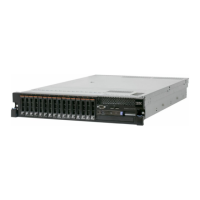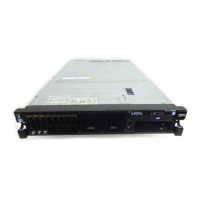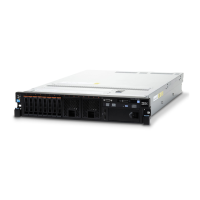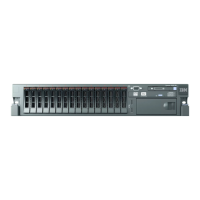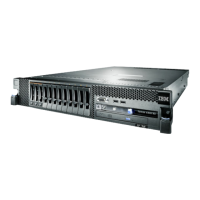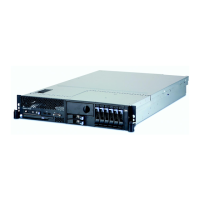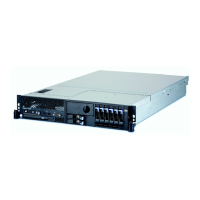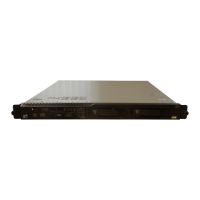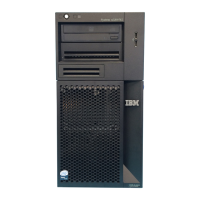Table 8. DIMM installation sequence for non-mirroring (normal) mode
Installed microprocessors DIMM connector population sequence
Microprocessor socket 1 Install the DIMMs in the following sequence: 3, 6, 9, 2, 5, 8,
1, 4, 7
Microprocessor socket 2 Install the DIMMs in the following sequence: 12, 15, 18, 11,
14, 17, 10, 13, 16
Memory mirroring
Memory-mirroring mode replicates and stores data on two pairs of DIMMs within
two channels simultaneously. If a failure occurs, the memory controller switches
from the primary pair of memory DIMMs to the backup pair of DIMMs. To enable
memory mirroring through the Setup utility, select System Settings → Memory. For
details about enabling memory mirroring, see “Using the Setup utility” on page 144.
When you use the memory mirroring feature, consider the following information:
v When you use memory mirroring, you must install a pair of DIMMs at a time.
One DIMM must be in channel 0, and the mirroring DIMM must be in the same
connector in channel 1. The two DIMMs in each pair must be identical in size,
type, rank (single, dual, or quad), and organization. They do not have to be
identical in speed. The channels run at the speed of the slowest DIMM in any of
the channels. See Table 10 on page 109 for the DIMM connectors that are in
each pair.
v Channel 2, DIMM connectors 7, 8, 9, 16, 17, and 18 are not used in
memory-mirroring mode.
v The maximum available memory is reduced to half of the installed memory when
memory mirroring is enabled. For example, if you install 64 GB of memory using
RDIMMs, only 32 GB of addressable memory is available when you use memory
mirroring.
The following diagram shows the memory channel interface layout with the DIMM
installation sequence for mirroring mode. The numbers within the boxes indicate the
DIMM population sequence in pairs within the channels, and the numbers next to
the boxes indicate the DIMM connectors within the channels. For example, the
following illustration shows the first pair of DIMMs (indicated by ones (1) inside the
boxes) should be installed in DIMM connectors 1 on channel 0 and DIMM
connector 2 on channel 1. DIMM connectors 3, 6, 9, 12, 15, and 18 on channel 2
are not used in memory-mirroring mode.
The following table lists the DIMM connectors on each memory channel.
CH0
CH1
CH2
CPU1
1
1
2
2
3
3
3
6
21
5
4
8
7
CH2
CH0
CH1
4
4
6
12
10 11
15
16
1413
QPI
5
5
6
9
18
17
CPU2
Figure 1. Memory channel interface layout
Chapter 2. Installing optional devices 107
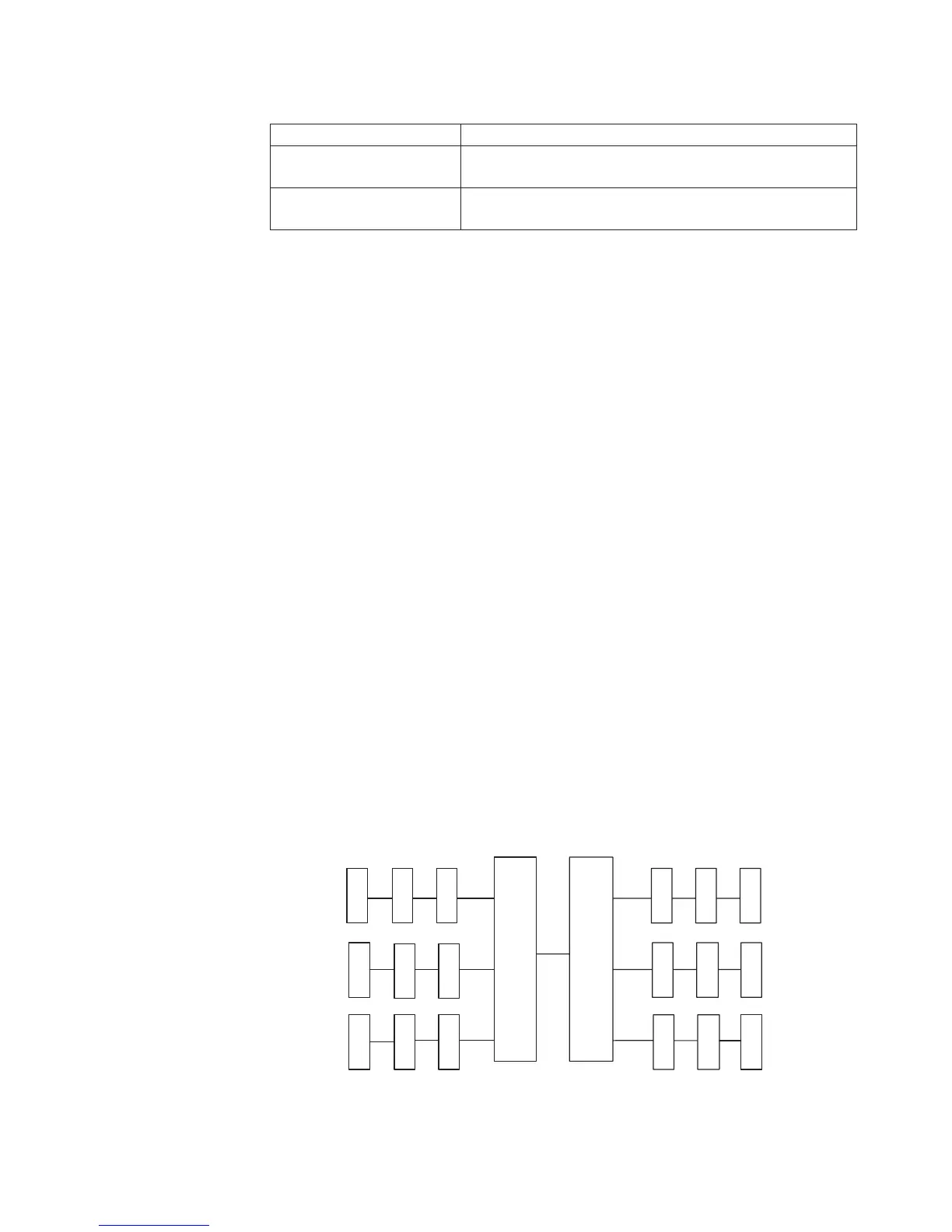